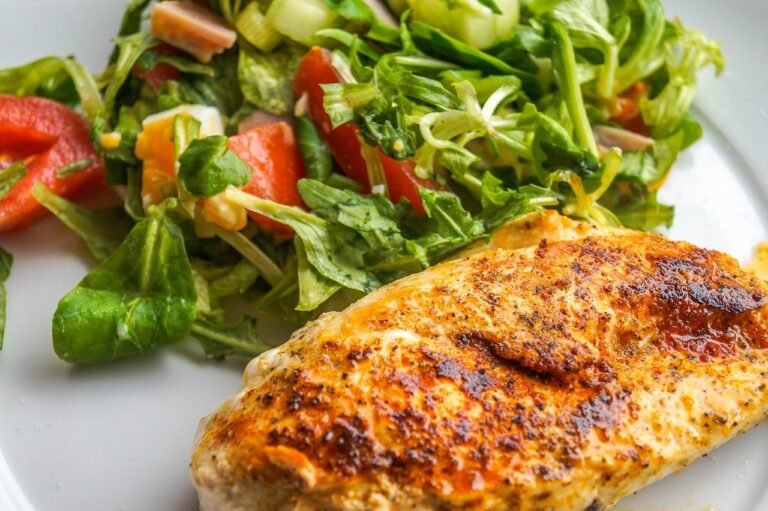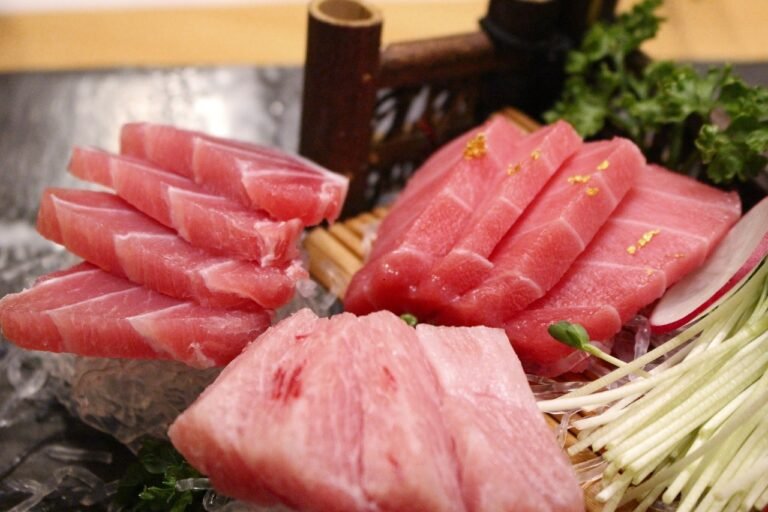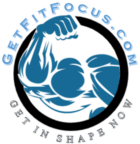Top 10 Foods That Help You Gain Muscle

By Doaa Samir

If you want to build lean muscle, both diet and physical activity are important. To get started, you must first put your body to the test through physical exercise. Your growth, however, will be slowed if you do not receive enough nutritional help.
Although high-protein foods are vital for muscle development, carbohydrates and fats are also essential sources of energy. If you want to develop lean muscle, you can exercise regularly and consume more calories from muscle-building foods each day.
1. Eggs
Eggs are rich in protein, healthy fats, and other basic nutrients such as B vitamins and choline. Amino acids are the building blocks of proteins, and eggs are high in the amino acid leucine, which is especially essential for muscle growth. Furthermore, B vitamins are important for a number of bodily functions, including energy production.
2. Nuts
Nuts are important for anyone trying to gain muscle mass. One ounce of cashews or almonds has 150-170 calories of high quality nutrients. This is why nuts are the best mix of protein, fats, and fiber, which helps you to get the extra calories you need without adding weight. Nuts are also very compact, making them an excellent option for a mid-day snack if you need to up your calorie intake.
3. Salmon
Salmon is an excellent source of protein for muscle growth and good health. It contains about 17 grams of protein, almost 2 grams of omega-3 fatty acids, and many essential B vitamins in each 3-ounce (85-gram) serving. Omega-3 fatty acids are critical for muscle health and may even help you build muscle during your workouts.

4. Chicken Breast
There’s a reason chicken breasts are considered a muscle-building staple. They are high in protein, with about 26 grams of high-quality protein in each 3-ounce (85-gram) serving. Chicken is also high in the B vitamins niacin and B6, which are quite useful if you’re physically active. These vitamins assist your body during the physical activity and exercise needed for optimum muscle gain. Furthermore, some research suggests that high-protein diets can help with fat loss.
5. Protein Shake
The foundation of your muscle-building regimen should be a protein and carbohydrate recovery shake. Before your workout, drink a protein and carbohydrate shake to set the stage for optimum muscle growth and nutrient utilization. Excessive muscle breakdown is delayed, protein synthesis is increased and muscle energy reserves are quickly replenished. It aids the blood flow to your muscles, creatine transport is increased and your body’s capacity to absorb and use carbohydrates is enhanced. This process can last for hours after your exercise according to studies from multiple universities.
6. Greek Yogurt
Dairy contains a blend of fast-digesting whey protein and slow-digesting casein protein, as well as high-quality protein. According to some studies, as people eat a mixture of quick and slow digesting dairy proteins their lean mass increases. All dairy is not made equal. Greek yogurt, for example, usually has twice the amount of protein as standard yogurt. While Greek yogurt is a healthy snack any time, it may be especially beneficial after a workout or before bed due to its combination of fast and slow digesting proteins.
7. Lean Beef
Beef has remained at the top of the list of best muscle building foods for decades, and with good reason. It is high in essential amino acids, B vitamins and creatine — all of which help develop muscle. Also, beef includes a combination of saturated and monounsaturated fats, which can help improve healthy testosterone levels and heart health. According to studies from the University of Melbourne, people who consume more red meat experience lower levels of anxiety and stress.

8. Tuna
Tuna is rich in vitamin A and many B vitamins, including B12, niacin and B6. It contains 20 grams of protein per 3-ounce (85-gram) serving. These vitamins and minerals are essential for good health, energy, and athletic stamina. Tuna also contains a high amount of omega-3 fatty acids, which can help to preserve muscle health. This could be especially important for senior citizens, because Omega-3 fatty acids have been shown in studies to help slow the loss of muscle mass and strength that happens as people age.
9. Lentils
Lentils should be your secret weapon for gaining mass. More than 18 grams of protein and 40 grams of slowly-digesting carbohydrates are contained in one cup of cooked lentils. They’re also reasonably priced and have a long shelf life. They can be mixed in with brown rice, spread over a salad or eaten as a stand-alone side dish in just 10 minutes.
10. Cottage Cheese
Low-fat cottage cheese contains 28 grams of protein per cup (226 grams), and contains the essential muscle building amino acid leucine. Like many types of dairy, cottage cheese has a high fat content. The best form of cottage cheese to use depends solely on how many calories you want to add to your diet. It’s a great muscle building snack. Just be sure to monitor the calories per serving.

Protein's Importance
Proteins contain amino acids that help regenerate and develop muscle tissue. You should eat it on a regular basis, says Laura Kruskall, PhD, director of the University of Nevada Las Vegas’ Dietetic Internship and Nutrition Center.
Strength training puts a strain on the muscles, causing small tears. Your body uses skeletal muscle protein to repair the damage, and your muscle fibers grow in strength and size. To fuel this process your body requires enough protein and calories, but since our bodies do not store excess amino acids we must obtain them through food.
BCAAs (branched-chain amino acids) are the nutrients in proteins that your body needs the most when working out to acquire muscle. Kruskall cites leucine, isoleucine and valine as examples. Animal foods such as beef, pork, poultry, fish, eggs, and dairy are good sources of BCAAs and other amino acids.
Muscle growth necessitates a positive energy balance, which means you must consume more calories than you expend. To gain a pound of muscle, you’ll need about 2,800 calories. This will help with protein turnover, which can be increased with exercise.

